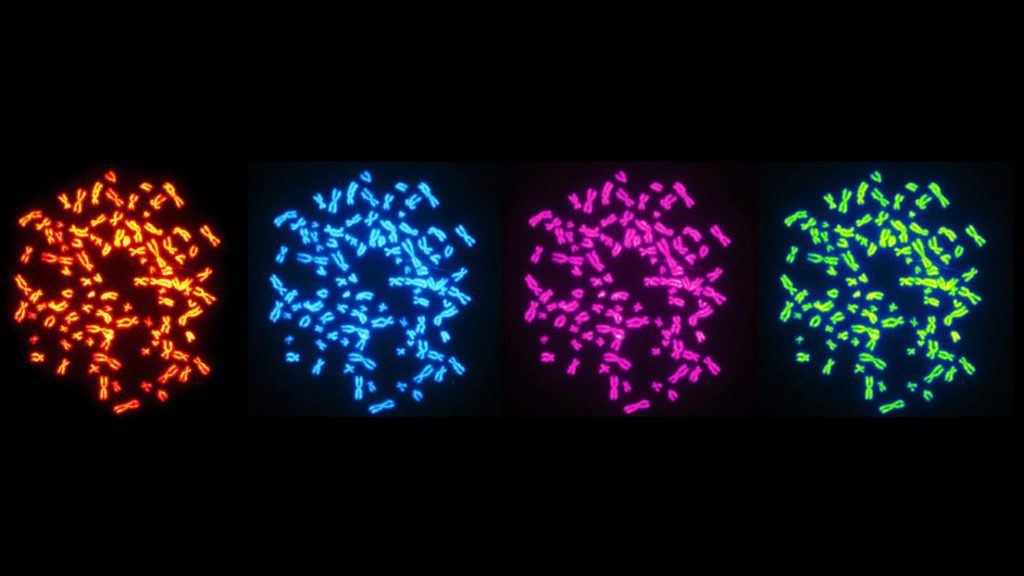Prof. Oricchio’s group at EPFL and Prof. Ciriello’s group at UNIL have uncovered a new way in which cancer can develop: whole genome doubling (WGD) changes the way DNA is organized in the 3D space, leading to the activation of oncogenes that drive cancer growth.

Credit: Elisa Oricchio/Giovanni Ciriello (EPFL/UNIL)
In a study published in Nature, the scientists show that whole genome doubling (WGD) can affect the 3D organization of the chromatin inside the cell through a phenomenon called “loss of chromatin segregation”.
The researchers looked at cells that lack the tumor suppressor gene p53, making them prone to WGD. They found that WGD leads to a reduction in the segregation of chromatin’s structural elements, such as loops, domains, and compartments, upending its careful organization in the cell. The result is a mixing of genetic material that is normally kept separate, changing the position of genomic regions in the 3D space, known as “sub-compartment repositioning” – setting the stage for the activation of oncogenes.
The work provides a new way of looking at the role of WGD and chromatin organization in the development of cancer. In the future, highly multiplexed single-cell molecular profiles, combined with barcoding technologies and new computational approaches, could help to further uncover what role disorganization of chromatin’s 3D structure plays in transforming a cell into a cancerous one.
Congratulations to both teams !
Reference
Ruxandra A. Lambuta, Luca Nanni, Yuanlong Liu, Juan Diaz-Miyar, Arvind Iyer, Daniele Tavernari, Natalya Katanayeva, Giovanni Ciriello, Elisa Oricchio. Whole genome doubling drives oncogenic loss of chromatin segregation. Nature 15 March 2023. DOI: 10.1038/s41586-023-05794-2